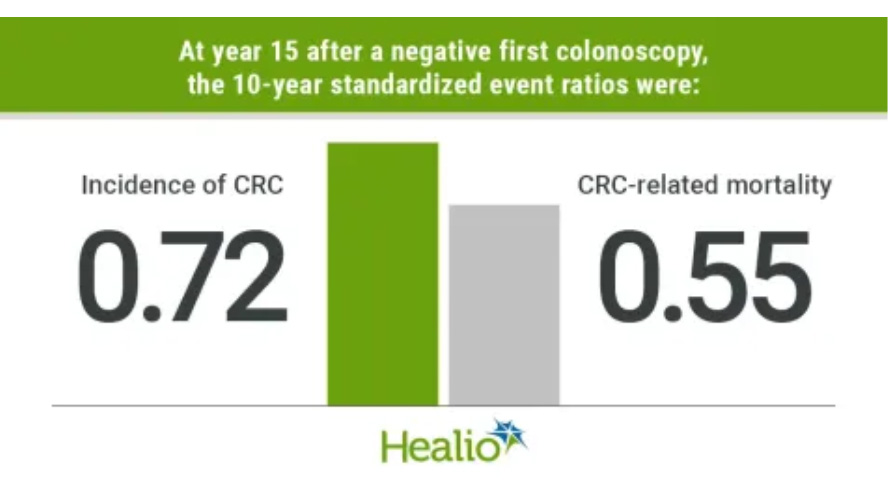The study on colonoscopy screening intervals for individuals without a family history of colorectal cancer (CRC) and with negative findings from an initial colonoscopy offers several key insights:
- The study found lower risks for CRC and CRC-specific death over 15 years in the group with a negative first colonoscopy compared to controls. This suggests that individuals with an initially negative colonoscopy may be at lower risk in the long term.
- Extending the interval between colonoscopies from 10 to 15 years in average-risk individuals with a negative first colonoscopy could be a safe approach. The study suggests this could reduce the likelihood of missing early CRC detection, affecting just two cases per 1,000 individuals.
- The potential extension of the screening interval is associated with a risk of missing only a small number of cases of CRC but could prevent one CRC-specific death per 1,000 individuals. It could also avoid 1,000 unnecessary colonoscopies, reducing the burden on healthcare resources.
- This study provides evidence supporting the possibility of a longer interval between colonoscopies in specific populations, aligning with emerging research that suggests the current 10-year recommendation may be conservative.



